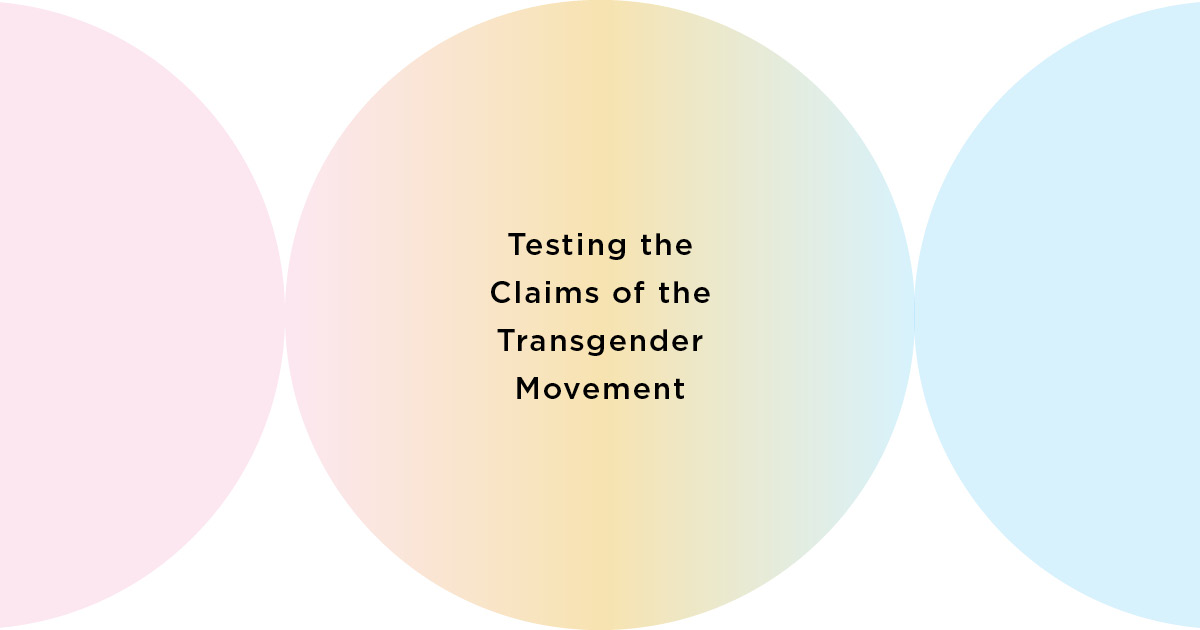
This article is an extract from God and the Transgender Debate by Andrew Walker. This warm, faithful and compassionate book that helps Christians understand what the Bible says about gender identity has been updated and expanded throughout, and now includes a section on pronoun usage and a new chapter challenging some of the claims of the transgender activist movement.
Any movement in society that wishes to persuade and convince others of the rightness of its cause should be willing to hold itself up to scrutiny. (This applies no less for Christianity than any other worldview.)
If the cause of justice is aided by the advance of the transgender movement (as we’re told is the case), then this movement should be all the more willing to test its claims against those who believe it is an ideology built on falsehoods about what it means to be human. The following intends to challenge and test the consistency and intellectual foundations of the movement.
The transgender movement relies upon the assumption that someone’s biological sex and gender expression are distinct, unrelated categories, with the result that a biological male who “feels” female can live out a gender expression at odds with the gender norms associated with their biological sex.
In this framework, “gender” as an emotional and psychological category is altogether distinct from a biological reality. But if you follow the arguments of transgender activists, they’ll argue that gender is simultaneously innate and waiting to be discovered, that it exists on a spectrum, and that it is socially constructed.
The whole ideological foundation of transgenderism is built on confusing, inconsistent, and contradictory grounds.
Did you follow that? Something that is innate and supposedly “real” can be socially constructed. That is not philosophically sensible. How can something that is socially constructed also be the product of an innate experience?
The very idea of a social construct obliterates the idea of stable, innate categories. If gender exists on a spectrum and multiple gender expressions can reside in a single individual, how can such variance in expression be innate?
At best, a transgender activist could argue that gender is socially constructed and exists on a spectrum, but then that calls into question the concrete existence of “gender” as a psychological reality. The whole ideological foundation of transgenderism is built on confusing, inconsistent and contradictory grounds.
Feminism and gay rights are central fixtures in progressive thought. But feminism and gay rights have something in common with each other that transgenderism does not. For feminism to make sense, there has to be an objective and real feminine category. In other words, feminism (that seeks to celebrate and empower women) means that womanhood must truly exist.
The same goes for homosexuality. Homosexuality entails the idea that a biological man is sexually attracted to another biological man, or that a biological woman is sexually attracted to another biological woman. But transgenderism denies that sex is either objective or authoritative. What does this mean? It obliterates feminism and homosexuality as stable categories. If individuals can transition between genders, it means that a man could be a woman or a man who is attracted to other men could become a woman.
LGB has little in common with “T” aside from relying upon each other in the broader pursuit of identity politics.
I do not believe homosexuality is compatible with biblical sexual ethics, but it would seem to me that homosexuals and feminists who champion these identities would see transgenderism as undermining the concrete existence of these categories on which those identities rely. All of this is why real-world feminists and some gay voices in popular culture are speaking out: LGB has little in common with “T” aside from relying upon each other in the broader pursuit of identity politics.